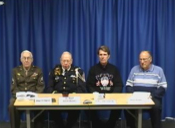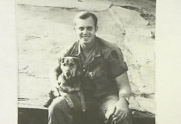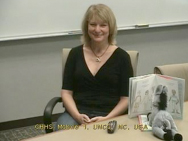 Today we have four classes participating in the TWICE ASK program with Tuskegee Airman Alexander Jefferson on his book Red Tail Captured, Red Tail Free. Wayne RESA hosted, bridged, and facilitated this videoconference for TWICE.
Today we have four classes participating in the TWICE ASK program with Tuskegee Airman Alexander Jefferson on his book Red Tail Captured, Red Tail Free. Wayne RESA hosted, bridged, and facilitated this videoconference for TWICE.
Some of the questions students have asked are:
- What was the food like in prison?
- What went through your mind as you ejected from your plane?
- How was your mental and physical health affected by being in the war and being a prisoner?
- What were some of the major battles that you participated in?
- What did you do to help young people, other than teaching, after you got out the war?
- Were you happy that you wrote about your experience as a Tuskegee Airman?
- What was it like to experience segregation?
- What was it like seeing war from above rather than on the ground?
- If you had a chance to fly again would you? “Oh heck, yeah, in a minute!”
- How did you feel when you had done so much for America and then you had to come back and fight for your rights?
Our World War II veterans are always adamant to tell students that the Holocaust did happen and don’t let anyone ever tell you that it didn’t happen?
This week we also had four days of ASK programs with author Janie Panagopoulos. There is still room in upcoming spring semester TWICE ASK programs.


 This morning, I was once more was involved in one of those two way interactive TV, living history sessions at the Berrien Regional Educational Service Center where I had served as Superintendent for some 14 years. Unlike
This morning, I was once more was involved in one of those two way interactive TV, living history sessions at the Berrien Regional Educational Service Center where I had served as Superintendent for some 14 years. Unlike 








 Today’s the first day of
Today’s the first day of  Today we participated in an exciting interview with
Today we participated in an exciting interview with  Today we’re trying out a new author for an ASK program on her book
Today we’re trying out a new author for an ASK program on her book  Here is a sample of the students’ questions:
Here is a sample of the students’ questions: